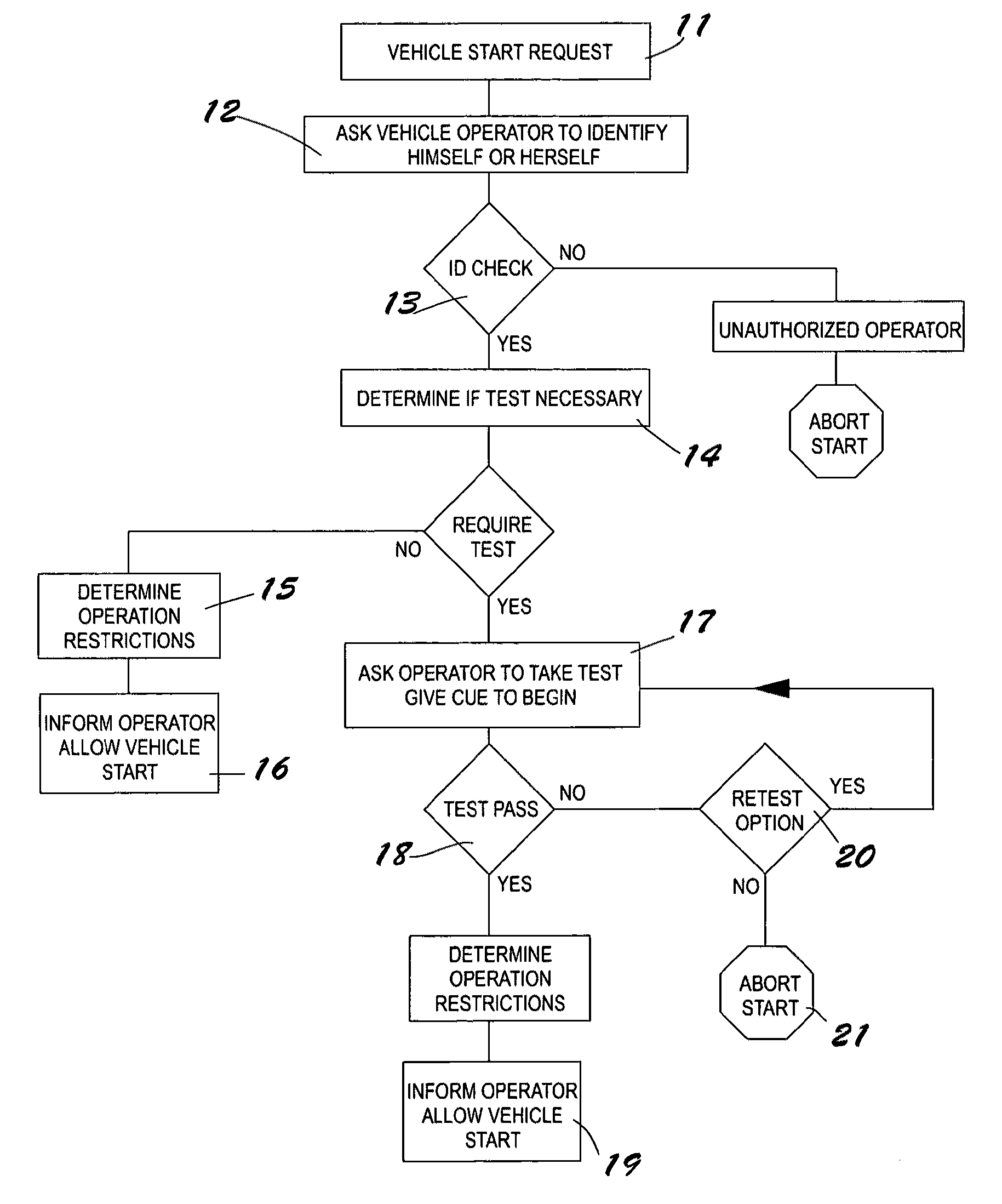Unsafe operation may arise due to a variety of reasons including, for example, the vehicle operator being under the influence of drugs or
alcohol, medication, or suffering from a lack of sleep or a medical condition.
Other reasons which may result in unsafe operation include the operator's
carelessness or inexperience or the ignoring of laws and regulations.
Unfortunately, they are also the cause of much carnage and tragedy on our roads and highways.
The economic
toll is also shocking.
However, despite increasingly stringent laws and penalties and the use of devices such as
breathalyzer ignition interlocks and
ankle bracelets with alcohol detection,
driving under the influence of alcohol remains a serious problem.
Alcohol-related accidents in the US cost approximately $114.3 billion dollars in 2000 including monetary and
quality of life losses.
Unfortunately, behind these statistics are many personal and family tragedies.
These statistics also demonstrate our inability to effectively deal with this problem.
Even when police are able to intercept a drunk driver, it is frequently after many miles have been traveled with the impaired driver at the wheel.
As a result,
drunk driving exposes everyone who travels our roads to an elevated risk of injury or death.
The arrest of
drunk drivers by police, while necessary, appears to be insufficient.
Unfortunately, such devices can be circumvented, for example, by having a sober person, other than the driver, take the
breathalyzer test.
Such precautions, however, may be ineffective if a sober vehicle passenger is available to take the test or if an effectively configured pump is used to blow into the
breathalyzer.
Repeatedly taking a breathalyzer test while driving may also be distracting for a driver and may actually cause an accident.
Breathalyzers are also prone to error and represent only an indirect measure of one's reflexes, acuity or
alertness and hence the ability to drive safely.
As a result, many drivers in an impaired condition discount breathalyzer results because they “feel fine.” Also, under certain circumstances, even legal levels of
blood alcohol may be too much because a driver's reflexes may already be diminished due to other reasons such as, for example, lack of sleep or use of various medications.
Passing a
blood alcohol level test may, therefore, create a false sense of security.
Also, breathalyzer interlocks also may stigmatize innocent famly members of a convicted drunk driver who may need to drive a car outfitted with such a device.
They are also inconvenient for others, such as
mechanics or parking attendants, who must operate the vehicle.
These devices not only suffer from many of the limitations of a breathalyzer
interlock system, they are also passive and not effective in keeping inebriated individuals from operating motor vehicles.
Devices such as breathalyzers and
ankle bracelets can typically only be implemented after a person has been arrested and convicted of a criminal offense.
Consequently, the breathalyzer interlocks and
ankle bracelets cannot prevent countless people who are intoxicated or otherwise impaired from operating vehicles.
However, such a device may easily be circumvented by a nondriver occupant of the vehicle.
Mistakes made by inexperienced drivers, such as speeding and failing to obey traffic regulations, lead to many accidents with or without the compounding effect of alcohol or drugs.
Fatigued drivers can also increase the risk of accidents.
Current technologies, such as breathalyzers, are totally ineffective in detecting and stopping drivers who are impaired due to any reason other than
alcohol consumption.
This is especially dangerous because many drivers, such as drowsy drivers, frequently do not realize that they are impaired.
Unfortunately, there have also recently been increasing reports of individuals attempting to operate other types of vehicles such as commercial or civil aircraft and various
watercraft while impaired with horrific results.
Typically there are no devices on such vehicles that can detect an impaired operator.
Many drivers who drive while impaired either do not care or are incapable of correctly gauging their abilities prior to getting
behind the wheel of a car.
 Login to View More
Login to View More  Login to View More
Login to View More 


